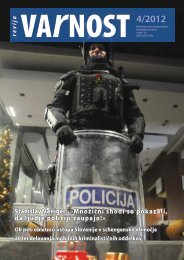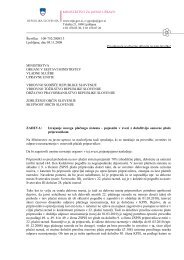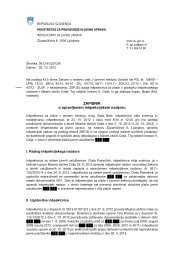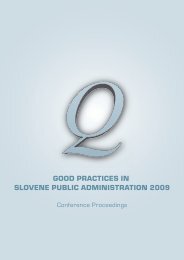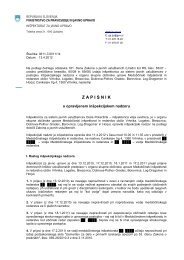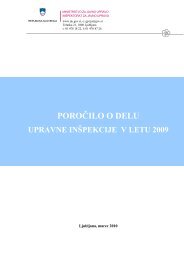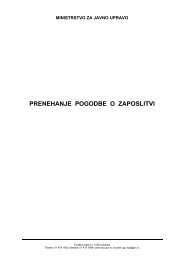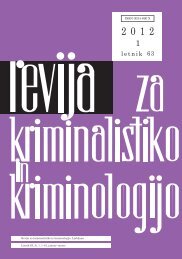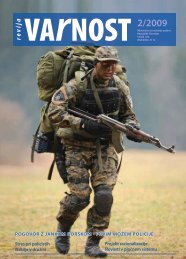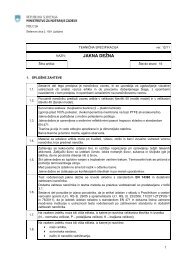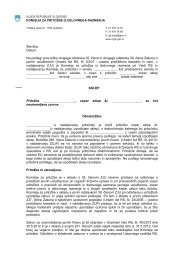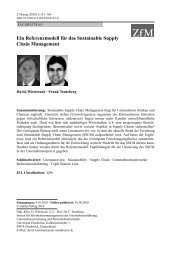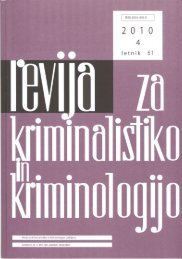Revija 4, 2011 - Ministrstvo za notranje zadeve
Revija 4, 2011 - Ministrstvo za notranje zadeve
Revija 4, 2011 - Ministrstvo za notranje zadeve
Create successful ePaper yourself
Turn your PDF publications into a flip-book with our unique Google optimized e-Paper software.
Branko Lobnikar, Alenka Lobnikar: Pravica do <strong>za</strong>sebnosti pri izvajanju policijskih pooblastil - anali<strong>za</strong> . . .<br />
The right to privacy in police procedures – an analysis of the view of<br />
police commanders<br />
Branko Lobnikar, Ph.D., Associate Professor of Security Organisation Management, Faculty of Criminal Justice and<br />
Security, University of Maribor, Kotnikova 8, 1000 Ljubljana, Slovenia<br />
Alenka Lobnikar, Graduate in Criminal Justice and Security Studies, Specialist in Police Management<br />
In the survey, the authors analyse the perception of the right to privacy from the point of view of exercising police powers. A<br />
survey was carried out of opinions about interference with the right to privacy in the exercise of police powers on a sample of criminal<br />
justice students (n = 65) and police commanders from local police stations (n = 53). Short stories were presented to survey participants<br />
and they were asked to evaluate the situations. The authors established that police commanders have a high level of understanding of<br />
the right to privacy, since they were very critical of police encroachment on the privacy of the individual in the majority of analysed<br />
situations. This was evident in the evaluation of disclosure of the suspect’s name to the public, as well as the description of the illegal<br />
entry of police into an apartment. The results are similar for a situation in which a police officer revealed the personal data of an alleged<br />
offender to his friend - more than half of all police commanders stated that such behaviour was an encroachment on privacy. The results<br />
in relation to guaranteeing communication privacy are interesting, although not surprising. It can be said that police commanders<br />
for the most part supported the state in the presented situation when weighing the material right of the state against the right of the<br />
individual to privacy but that is not necessarily in conformity with legal practice in the field. Criminal justice students more frequently<br />
supported the right of the individual to communication privacy.<br />
Key words: human rights, privacy, territorial privacy, communication privacy, information privacy, police powers, police, criminal<br />
justice<br />
UDC: 342.72/.73 + 351.74/.76<br />
343



